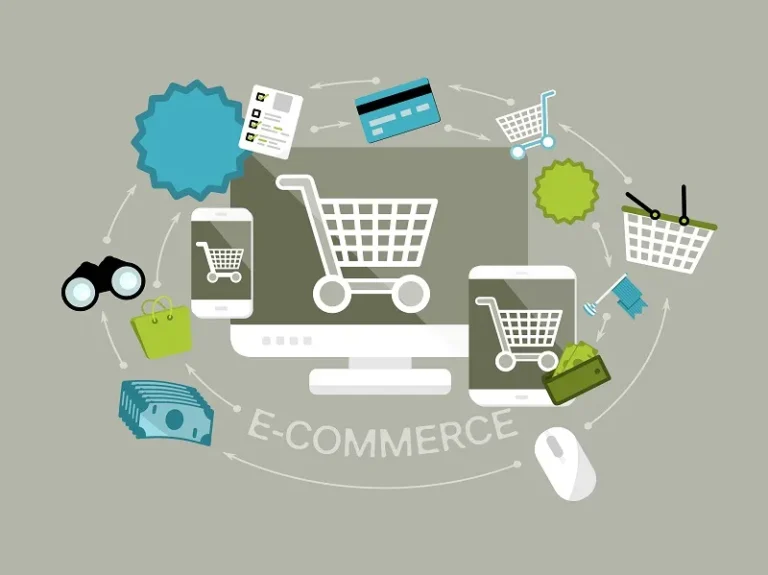In today’s digital world, having a robust e-commerce store is no longer optional—it’s essential for businesses aiming to thrive in an increasingly competitive marketplace. As more consumers shift to online shopping, businesses must adapt to the changing landscape to meet customer expectations and drive growth. Here’s why having an e-commerce store is crucial for your business in 2025:
1. Expanding Your Reach
With a physical store, your reach is limited to local customers. An e-commerce store opens the door to a global customer base, allowing you to sell your products or services to anyone, anywhere, at any time.
- Global access: Tap into international markets and reach more customers.
- 24/7 availability: Allow customers to shop anytime, offering convenience and accessibility.
- Targeted marketing: Use digital advertising and SEO to attract the right audience.
2. Enhancing Customer Convenience
Consumers today expect convenience and flexibility. An e-commerce store provides them with the ability to browse, compare, and purchase products from the comfort of their homes or on-the-go.
- Easy browsing: Customers can view products at their convenience, day or night.
- Multiple payment options: Offer various payment methods, including credit cards, PayPal, and digital wallets.
- Fast shipping options: Provide delivery choices that suit customer needs, such as same-day or next-day delivery.
3. Lower Operational Costs
Operating a traditional brick-and-mortar store involves significant overhead costs, such as rent, utilities, and staffing. E-commerce stores drastically reduce these costs, allowing businesses to allocate resources more efficiently.
- Reduced overhead: Save on rent, utilities, and in-store staff.
- Flexible inventory management: Manage stock more efficiently with drop shipping or automated systems.
- Lower startup costs: Building and maintaining an e-commerce store is often more affordable than setting up a physical shop.
4. Better Customer Insights
One of the key advantages of running an e-commerce store is the wealth of data you can gather about your customers. This data enables you to understand customer behavior, preferences, and trends, helping you make informed decisions to improve your business.
- Track customer behavior: Understand which products are most popular, which pages users visit, and where they drop off in the purchase process.
- Analyze sales patterns: Use analytics tools to track sales, product performance, and inventory needs.
- Personalized experiences: Offer tailored product recommendations based on user preferences and browsing history.
5. Increased Sales Potential
E-commerce stores can significantly boost your sales by providing a seamless buying experience, personalized offers, and strategic marketing. With integrated payment solutions, users can complete transactions in just a few clicks, reducing friction in the purchasing process.
- Upselling and cross-selling: Suggest related products to customers at checkout, increasing average order value.
- Discounts and promotions: Offer exclusive online discounts or bundle deals to encourage more sales.
- Integrated marketing: Use email marketing, retargeting ads, and SEO to drive traffic to your site and increase conversions.
6. Competitive Advantage
An e-commerce store gives your business a competitive edge by ensuring you’re meeting customer expectations in a digital-first world. If your competitors are already online, not having an e-commerce presence could put you at a disadvantage.
- Meet customer expectations: Customers now expect businesses to have an online presence for easy purchasing.
- Stay ahead of competitors: By embracing digital retail, you position your business as innovative and customer-focused.
- Brand visibility: A strong e-commerce presence helps improve your brand visibility and recognition.
7. Scalability and Flexibility
As your business grows, an e-commerce store allows you to scale operations without the limitations of physical space. You can easily add new products, integrate additional sales channels, and expand into new markets.
- Easy expansion: Add new products and categories without needing more physical space.
- Integrated sales channels: Sell across multiple platforms like Amazon, eBay, or social media.
- Automated growth: Use automation tools for inventory management, order processing, and customer follow-ups to handle growth smoothly.
Conclusion:
An e-commerce store is no longer just a luxury for businesses—it’s a necessity. It allows you to expand your reach, enhance customer experience, reduce costs, and gain valuable insights into your market. In 2025, the future of commerce is digital, and investing in an e-commerce platform will ensure your business thrives in the competitive digital landscape.





